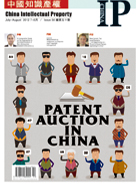
Data protection relates to the information that has not been disclosed to the public regarding pharmaceutical or agricultural chemicals products, and new chemical entities, whose development has required a considerable effort. They are data produced to establish the safety and efficacy of these products for the purpose of obtaining health registrations with the appropriate authorities.
Grounds for granting this protection arise from the "considerable effort" invested in the compilation of these data. Pharmaceutical companies argue, for instance, that would be unfair made available information related to a product which has cost millions of dollars in research and clinical trials to competitors, which would not need to make a similar spending for obtaining marketing approvals
Against this position is argued that such data should be in the public domain to give priority to the protection of public health, whereas they contain important information (for example, side effects of drugs) for which the secret may lead to unwanted effects, by restricting the civil society surveillance.
In Ecuador conflict appears because there is no legal determination of the scope and exclusivity time that information deserves.
The basis of the problem lies in that 1.) TRIPs does not expressly require the granting of exclusivity on data, but protection against unfair commercial use. (2) Regulatory agencies do not have competence in IP matters, and these institutions by its very nature do not incur in unfair competition acts.
TRIPS stipulates in article 39.3 that countries have the obligation to establish a protection against unfair commercial use of confidential data (for example, data tests) relating to new chemical entities filed by companies to obtain regulatory approvals of new drugs.
Then, on strict legal sense, TRIPS does not require data protection exclusivity, just protection against unfair commercial use.
The common provisions on Industrial Property of the Andean countries during the 1990s, (in particular Cartagena Agreement Decision 344) granted a 5 years term for data protection, and explicitly granted to the Member Countries capacity to authorize summary approval proceedings for products complying with the bioequivalence and bioavailability requirements.
However, current Decision 486, does not determine a fixed period for data protection and exclusivity of non disclosed information against unfair commercial use, and, rather, has left at the Member Countries discretion the possibility of regulating such protection, provided that you back up the collective welfare and public health.
So article 266, thereon establishes—“the Member Countries, where they require, as a condition of approving the marketing of pharmaceutical or of agricultural chemical products which use new chemical entities, the submission of data test or other undisclosed data whose preparation involves considerable effort, shall protect such data against unfair commercial use. In addition, Member Countries shall protect such data against any disclosure, except where necessary to protect the public, or unless measures are taken to ensure the protection of such data against unfair commercial use.”
Decision 632 of the Andean Community, by its side, clarified the interpretive scope of 486 Decision, and left at the Member Countries discretion the determination of deadlines for exclusive protection.
Based on these rules, some Andean countries (Colombia and Peru) have passed laws to confer to their holders the exclusivity on such data for a period of between five and ten years, but Ecuador has not understood the rule in that sense.
Ecuadorian authorities consider that there is no legal basis to justify the extension of the agrochemical and pharmaceutical products protection via data protection.
On the contrary, article 363 of the Ecuadorian Constitution establishes that—"the State will be responsible for: 7. ensuring the availability and access to quality, safe and effective medicines, regulating its commercialization and promoting domestic production and the use of generic drugs that respond to epidemiological needs of the population. Access to medicines and public health interests shall prevail over the economic and trade interests."
In that same line, articles 6 and 9 of the Regulation for Health Registration of Drugs (RSMG), require for the registration of new drugs: preclinical and clinical trials to ensure the safety and efficacy of the product, technical information and side effects studies.
However, health legislation does not ask to second (or subsequent) drug health registration seekers for submitting their own data tests, or bioavailability and bioequivalence studies, allowing a direct or indirect use of the innovative drug data.
In our opinion, Ecuador is then exposed to claims for violation of its obligation to grant some degree of data protection. It should enact legislation for data protection that facilitates the entry of generic competitors and, at the same time, offers appropriate protection to data protection holders and certainty to consumers on the safety and efficacy of all products whose commercialization is approved.
|
Copyright © 2003-2018 China Intellectual Property Magazine,All rights Reserved . www.chinaipmagazine.com 京ICP备09051062号 |
|
|



